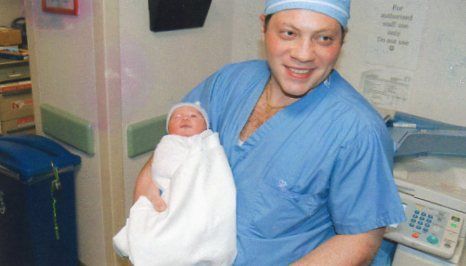Doctor Guided
What is a circumcision?
Circumcision is a cosmetic surgery that removes the foreskin, or skin that covers the end of the penis. Circumcision is a religious rite or a ceremonial custom in many cultures. It is especially frequent among Jews and Muslims. Newborn circumcision is an optional surgery in the United States. According to the National Center for Health Statistics, around 64% of newborn males are circumcised. This number, however, differs across socioeconomic, racial, and geographic groupings.
Circumcision is a profoundly personal decision, and choosing if it’s suitable for your family will involve careful consideration of many issues. You may have medical questions in addition to the personal, cultural, and religious dimensions of the choice.
Circumcision is a procedure that can be carried out at any age. It’s generally done shortly after your kid is delivered, or within the first month of life. A local anesthetic is used to numb the region and the operation is conducted while the infant is still awake because the procedure is uncomfortable. We propose that if the infant is older, he be given anaesthetic to reduce pain and the danger of harm to the penis. Because children become more conscious of their sexual organs as they get older, the procedure has greater psychological consequences, and youngsters become scared.
Mark Vaynkhadler M.D., FACOG
Specializing in Newborn Medical Circumcisions and Traditional Jewish Circumcisions up to one month old. Dr. Mark finished undergraduate pre-med studies at New York University and graduated with honors. Afterward, he received his medical degree from Upstate Medical University at Syracuse and Binghamton.
Upon completing his medical degree, Dr. Mark then completed his OB/GYN residency at St. Luke’s-Roosevelt Hospital, an affiliate of Columbia University’s medical college. In addition to his medical education, Dr. Mark is board certified in Obstetrics and Gynecology, and is licensed to Practice Medicine in the State of New York. Dr Mark has been performing newborn circumcisions since early training for over 20 years.
After performing thousands of circumcisions in his career path, Dr Mark saw the need for Traditional Jewish Circumcisions among his community, and he then trained and studied to perform them, adhering to the strict requirements of Jewish Orthodox Law. Dr Mark was also privileged to perform his son’s Brit Milah (ritual circumcision) who is doing great, making his father proud every day.


Dr Mark welcomes the Tri-State New York community to share his skills and experience for newborns and their parents in an amazing experience of newborn circumcision! Dr Mark is very flexible as to the location and family’s preferences, and can perform the procedure to the most stringent medical standards at his medical office, at his med-spa with party-planning options, your private house or apartment of preference, or a place of worship.
Arrangements with a Rabbi or other religious leaders, or party planners are welcomed.
At any age, circumcision can be performed. It’s generally done immediately after your kid is delivered, or within the first month of life. Because the procedure is uncomfortable, the region is numbed with a local anesthetic, and the operation is conducted while the infant is awake.
If the infant is older, we advise giving him anesthetic to reduce discomfort and the danger of harm to the penis. As children get older and become more conscious of their sexual organs, the operation has a greater psychological impact, and youngsters become terrified.
The majority of neonates are restrained or placed in a circumcision brace. The infant is reassured, and a local anesthetic (numbing drug) may be used to relieve pain. A protective device is used to remove the skin covering the tip of the penis, and then gauze with petroleum jelly or antibiotic ointment is placed. The technique is frequently performed under general anesthesia in older children and adults.
Despite what many people may believe, this is not an extremely painful procedure. If local anesthesia is given, the child will feel pressure and movement but not pain. The child may be briefly upset while he is being held in place. If the circumcision is performed under general anesthesia, he will not experience any pain during the procedure. Once the procedure is completed the child will not have pain with urination since the urethra (urinary tube from the bladder through the penis) is left untouched during circumcision.
Newborns and infants recover very quickly from the procedure, usually within 12 to 24 hours. Young children recover in one to two days. Older children and young adults recover in three to four days. After circumcision, there may be temporary skin bruising or mild swelling that can last for several weeks.
Spa Services
Treatments
Office Hours
-
Wed – Sat
10:00 am – 6:00 pm -
Tue – Sun
Closed
Contact
-
1502 East 14th street, Brooklyn, NY 11230
